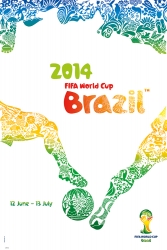
I published an op-ed with the LA Times about the Luis Rubiales fiasco. Here, some of the things that I couldn’t cram into 700 words.
Editors gave my piece the headline “Rubiales Must Resign.” Were I writing headlines, I might opt for “Rubiales must go,” or, “Fire Rubiales.”
Last week, surprising reports by Spanish sports outlets gave us almost a whole day of thinking he might step down from his position as the president of the RFEF, Spain’s federation. This was, we thought, the reason for the federation’s August 25 emergency session. Bullies like him do not resign, however. A man like him responds to criticism with howls of injury. He scans interactions for signs of betrayal. His world is one of friends and enemies, with the former always on the edge of becoming the latter.
From the moment the team won, his behavior has been awful. His first instinct, at the referee whistle announcing the team’s historic victory, was to wave his balls at his critics. This is not offensive because he was standing next to members of Spain’s royal family. This is offensive because it shows the world the posture he has taken toward the people in the game who have been demanding that the federation do better. It shows a profound disrespect for the accomplishments of the women on the field, and the women off of it. And it shows how little he cares about the team’s fans.
In the hours after the win, he tried to make this team’s victory his. On the award platform, he asserted a special relationship to players—physically laying claim to them in his body language. He didn’t just hug them, he nuzzled their necks and kissed them. He lifted a number of players off their feet—that is a particularly loaded piece of bodily interaction. More on that in a second. He acted like he and the players were all old friends, or like a drunk uncle at a family picnic. His behavior towards Hermoso felt extra weird: for me, it was the way he grabbed her head. Soon we saw locker room video of her expressing disgust at the kiss, and another video of him promising the team a free trip to Ibiza, to celebrate his impending marriage to Hermoso.
Pressured into recording a video apology, he tried to coerce Hermoso and the team’s captain into being his alibis. When that didn’t work, the federation issued a statement that put his words in Hermoso’s mouth — this amplifies the violation of the way he kissed her. She told people to talk to her union, and eventually had to come out and say how all this felt for her. It made her feel vulnerable, and it made her into a victim. For this alone, we all have a right to be furious.
On Friday, Rubiales gathered as many members of the federation and coaching staff as could be found. Only a handful of the members of the Spanish federation are women, so they had to work to find women to populate this this spectacle. Jorge Vilda’s coaching staff were in the room, and the women who work under him were made to sit in the front row.
Rubiales’s discourse has been disturbing. In his empty apology he suggested one could “both sides” the incident (“there was no bad faith from either side”). His behavior was “natural,” “normal.” He claimed that he and Hermoso had a special relationship. His speech on Friday was a naked display of toxic and wounded narcissism. Here I get to the reason I am writing today.
Rubiales argued that the kiss was consensual. He anchored that argument in the fact that when Hermoso stopped in front of him, as was expected of her, she did something unusual. She lifted him off his feet. Rubiales had done this to three or four people before his interaction with Hermoso—with players who are shorter than him. On Friday, he argued that this made the kiss consensual. The federation then went (as one fan put it) “full Zapruder film” and posted screenshots which somehow make this argument.
Clearly, all this demonstrates is that Hermoso made him feel small, and so he needed to do something about it. So, in the press conference, he reminds everyone that in the final Hermoso’s penalty kick was saved by Mary Earps. He claims that he told her she could forget about it—but forgetting about it is clearly not what he wants us to do. He wants us to think about her as a weak player, and the team’s victory as having been achieved in spite of her. He then said he asked for a little kiss and claims she said yes.
Even if everything he said about this interaction is true (and we have ever so many reasons to characterize his narrative as gaslighting) it is the very definition of a coercive scenario. Players in that situation can’t just push him away from them. If they refuse to shake his hand, or dodge the hug, it’s a massive scandal and all along even the players on the front line of the struggle have done everything they could to keep everyone’s eyes on the game.
He demonstrated that he understands the coerciveness of the public spectacle in the way he used cameras to manipulate women on Vilda’s coaching staff into appearing to support him. You can see a couple women move their hands almost as if they were clapping during the event, while either appearing demoralized or as if they might explode in anger. Those women resigned shortly afterwards and published a statement giving the full breakdown of his dishonest and manipulative behavior.
I have so much more to say and will keep writing here.














